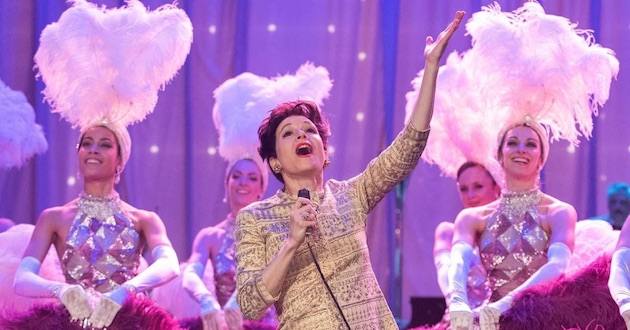Everyone knew about Dorothy, the yellow brick road and that magical place somewhere over the rainbow. But how many people actually knew Judy Garland, the beloved face and voice of Dorothy? Not many.
Still, nearly three decades later as the 1960s come to a close in the new film “Judy,” there isn’t really anybody who can say that they truly understand Judy. Brought to life from Robert Goold’s biopic “Judy,” written for the screen by Tom Edge and based on Peter Quitter’s 2010 West End play “End of the Rainbow” (transplanted to Broadway in 2012) the film is an honest and often gut-wrenching front row seat to the life of one of the world’s most famous and beloved actresses.
Thirty years after her most famous role as Dorothy, her career has taken a slow, tragic descent.
This time in her life is what the movie brings a spotlight to. She’s now a struggling single mom dabbling in random singing gigs to support her children. But with no stable home and no real income, Judy is forced to make a decision: stay in the United States and struggle to provide for her kids, or go to London for a series of concerts to reclaim her name and earn some much needed cash.
Movie contains profanity and innuendo.
In the end, Judy decides to fly across the pond, where she is greeted by a mixture of adoring fans and vicious critics. And, unfortunately, not even this second chance at fame can suppress her destructive habits or erase the demons of her past.
Rather than serving as an escape, her trip to Europe exacerbates her personal struggles. The movie accurately portrays Garland as a kind but troubled woman. Throughout the film, she struggles to love people well, largely because she doesn’t really understand how to love herself or how to work through the years of possible sexual abuse we learn that she endured earlier in her life. However, Judy is quick to make a few friends. She feels loved and heard, specifically by two of her most devoted fans.
Her problems create a struggle for her to keep her children. She does love them, even though her methods aren’t best suited for her kids. Though she was forced to move her children around a lot when they were younger, it’s also clear she wants what is best for them. This becomes evident when her daughter says she wants to stay in a stable home with her father, Sidney Luft. Although that separation from her daughter breaks Judy’s heart, she ultimately wants her children to be safe and happy.
One of the most touching lines is when she tells a friend that having kids is like “living with your heart outside your body.”
Providing a stable home is difficult for Garland. It’s no secret that she struggled with drug and alcohol abuse throughout her life, and the film shows that some of those addictions began at a young age. When Judy asks for food as a young girl on set, she’s told instead to “take a pill” to curb her hunger as well as to sleep; producers and managers are the ones giving Judy unlabeled pills.
As Judy becomes an adult she continues to take pills (most of them are unlabeled throughout the film) and to drink a variety of alcohol. In one scene, her young daughter asks her not to take the pills that make her fall asleep. She’s obviously under the influence of drugs and/or alcohol in multiple scenes as she struggles to perform on stage.
Judy Garland reached desperately for hope amid deep brokenness. But she was always too far away to grasp the beauty over the rainbow.
This biopic is a tragedy at its core, but one that still delivers poignant glimpses of an icon’s longing for happiness. Renée Zellweger gives an incredible, heart-wrenching performance, while fellow cast members play their parts well, too. Zellweger shows us how Judy was a fighter, albeit it a damaged one, right up to her tragic death in 1969.
Judy Garland may be best remembered for the earlier times in her life. The movie is an accurate portrayal of her struggles. Consequently, there really isn’t much redemption here. And that makes Judy a hard film to watch—especially if you’re expecting the kind of happy ending this beloved actresses’ films always had.
–PluggedIn
